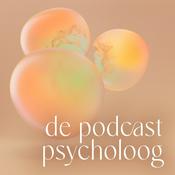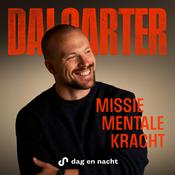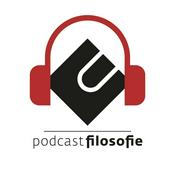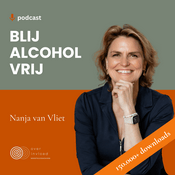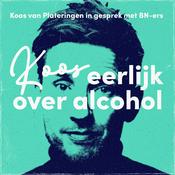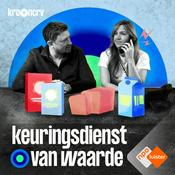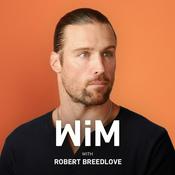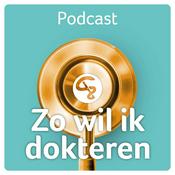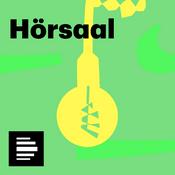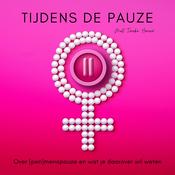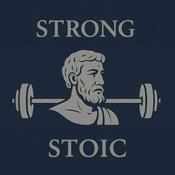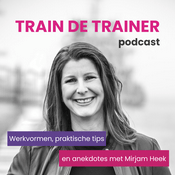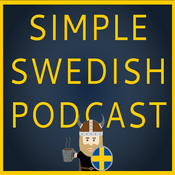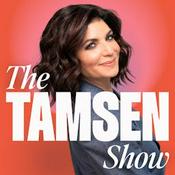292 afleveringen
- Snacks make up a quarter of what most people eat. Yet most of us never question them.
In this episode, Professor Sarah Berry, ZOE’s Chief Scientist, explains why snacking is not the problem and how seven snack swaps can lower cholesterol, support gut health, and reduce heart disease risk.
Most snacks are high in sugar, salt, and saturated fat, and many carry “health” claims that hide this. Sarah breaks down how to spot this, explains what makes a good snack and why snack timing matters.
You’ll walk away with seven simple snack ideas that help improve cholesterol, blood sugar, and heart health in weeks.
If you’re a snacker, this may be the easiest place to improve your diet.
🌱 Try our science-backed and tasty wholefood supplement Daily 30+
Get our brand-new app and Gut Health Test designed by world-leading gut health and nutrition scientists to build healthy eating habits 👉 Join ZOE
Follow ZOE on Instagram.
Timecodes
00:00 Intro
03:31 95% of us snack every day
06:33 The 9pm rule that changes everything
12:43 Why late snacks keep you less full
16:33 The breakfast mistake that adds 320 calories
21:35 The ‘bliss point’ that makes snacks hard to stop
25:37 Should you worry about sugar?
29:32 How to actually read a snack label
33:45 Why sugar appears under 42 different names
35:30 The simple snack most people overlook
38:15 The protein-packed food we don’t eat enough of
41:26 The one swap that cut heart disease risk by 30%
43:22 Why this high-fat snack doesn’t cause weight gain
46:26 The fermented food that supports your gut
48:20 The creamy fruit that keeps you full
50:30 The sweet treat that may help your heart
52:55 How quickly you’ll feel the difference
55:35 Why most snacks quietly drag your diet down
56:32 Why timing may matter more than frequency
01:00:20 Can you snack and still stay healthy?
📚Books by our ZOE Scientists
The Food For Life Cookbook
Every Body Should Know This by Dr Federica Amati
Food For Life by Prof. Tim Spector
Ferment by Prof. Tim Spector
Free resources from ZOE
Eating for Better Brain Health: Your brain-gut blueprint
How to eat in 2026 - Discover ZOE’s 8 nutrition principles for long-term health
Live Healthier: Top 10 Tips From ZOE Science & Nutrition
Gut Guide - For a Healthier Microbiome in Weeks
Better Breakfast Guide
Mentioned in today's episode
ZOE snacking study: What should you do?
The ZOE Big IF Study: What did we find?
Whole Fruits Versus 100% Fruit Juice, Nutrition Bulletin (2025)
What are added sugars, and where are they hidden?
Have feedback or a topic you'd like us to cover? Let us know here.
Episode transcripts are available here. - Today, we’re asking how we can boost our brain.
Our brain is a living, morphing organ that is constantly responding to the stimuli we feed it. So the big question is: what sort of stimuli will keep our brain strong and healthy? Is it brain puzzles? Supplements?
Neuroscientist Dr. Wendy Suzuki believes the most powerful way to support your brain is by simply moving your body. She’s joining me today to explain why.
🌱 Try our new plant based wholefood supplement - Daily30+
*Naturally high in copper which contributes to normal energy yielding metabolism and the normal function of the immune system
📚Books by our ZOE Scientists
The Food For Life Cookbook
Every Body Should Know This by Dr Federica Amati
Food For Life by Prof. Tim Spector
Ferment by Prof. Tim Spector
Free resources from ZOE
How to eat in 2026 - Discover ZOE’s 8 nutrition principles for long-term health
Live Healthier: Top 10 Tips From ZOE Science & Nutrition
Gut Guide - For a Healthier Microbiome in Weeks
Better Breakfast Guide
Have feedback or a topic you'd like us to cover? Let us know hereListen to the full episode here - Chronic diseases like heart disease, diabetes, and obesity are killing more people than ever before. Could your diet be the biggest driver of this risk?
Today, Dr Mark Hyman explains why food matters more than genetics for long-term health, and how one diet change can make the biggest difference.
Alongside Professor Tim Spector, Mark, a 15-times New York Times bestselling author and a practising family doctor, explores how modern eating is linked to chronic disease and what the science says reduces risk.
We break down how food is designed to make us eat more, how this affects metabolism, insulin and inflammation, and why this matters more than your genes.
By the end of the episode, you’ll understand the single most important dietary change Mark believes can lower chronic disease risk, based on clinical experience.
If the modern world is driving these conditions, what’s one small change you can make to take back control of your future health?
🌱 Try our science-backed and tasty wholefood supplement Daily 30+
Get our brand-new app and Gut Health Test designed by world-leading gut health and nutrition scientists to build healthy eating habits 👉 Join ZOE
Follow ZOE on Instagram.
Timecodes
00:00 Intro
04:12 Why birth is designed to be messy
08:32 Why your first microbes shape everything later
10:46 Can you replace microbes after a C-section?
13:05 Why the first few years matter more than the rest
15:54 Why antibiotics always come with a hidden cost
17:42 How families swap microbes without realising
19:06 Why microbes survive in some places — and not others
21:25 Why bigger social groups protect your immune system
22:30 How scientists can tell who you live with
24:15 Why closeness matters more than genetics
25:38 Can you catch bad gut bugs from other people?
26:29 Can anxiety spread through gut microbes?
27:55 How scientists now rank “good” and “bad” gut bugs
31:05 Why countryside living changes your gut health
33:49 Why getting dirty may improve mental health
35:33 Why sterilising everything can backfire
38:05 Why pets — especially dogs — boost gut health
42:18 Can your partner improve your health without dieting?
43:25 Why loneliness harms your gut microbiome
45:25 The shared habit of long-living communities
52:01 Why fighting germs may be harming your health
📚Books by our ZOE Scientists
The Food For Life Cookbook
Every Body Should Know This by Dr Federica Amati
Food For Life by Prof. Tim Spector
Ferment by Prof. Tim Spector
Free resources from ZOE
Eating for Better Brain Health: Your brain-gut blueprint
How to eat in 2026 - Discover ZOE’s 8 nutrition principles for long-term health
Live Healthier: Top 10 Tips From ZOE Science & Nutrition
Gut Guide - For a Healthier Microbiome in Weeks
Better Breakfast Guide
Mentioned in today's episodeFood Fix Uncensored: Inside The Food Industry's Biggest Cover-Ups by Mark Hyman
Salt, Sugar, Fat: How the Food Giants Hooked Us by Michael Moss
Nourishment: What Animals Can Teach Us about Rediscovering Our Nutritional Wisdom by Fred Provenza
Global Burden of Disease study: Diet vs. smoking, Lancet (2019)
Ultra-Processed Diets Cause Excess Calorie Intake and Weight Gain, Cell (2019)
The study of food addiction, Appetite (2010)
Can fermented food fight inflammation?
Breast Cancer Risk among US-Resident Polish Migrant Women, IJERPH (2021)
Milk and Health, NEJM (2020)
Have feedback or a topic you'd like us to cover? Let us know here.
Episode transcripts are available here. - Today, we’re talking about arthritis.
It might not sound as alarming as cancer or heart disease, but arthritis can quietly turn simple movements into painful tasks.
Here’s the good news. Emerging research suggests that diet can be a powerful first line of defence - helping to lower inflammation and reduce the risk of the disease developing.
I’m joined by Dr. Tamiko Katsumoto to explore how simple changes to what’s on our plate can help protect our joints.
🌱 Try our new plant based wholefood supplement - Daily30+
*Naturally high in copper which contributes to normal energy yielding metabolism and the normal function of the immune system
📚Books by our ZOE Scientists
The Food For Life Cookbook
Every Body Should Know This by Dr Federica Amati
Food For Life by Prof. Tim Spector
Ferment by Prof. Tim Spector
Free resources from ZOE
How to eat in 2026 - Discover ZOE’s 8 nutrition principles for long-term health
Live Healthier: Top 10 Tips From ZOE Science & Nutrition
Gut Guide - For a Healthier Microbiome in Weeks
Better Breakfast Guide
Have feedback or a topic you'd like us to cover? Let us know here
Listen to the full episode here - Are modern habits around cleanliness, parenting, and social contact shaping your gut health more than you realise?
In this episode, Professor Tim Spector explains how gut microbes are shared between people - through relationships, daily contact, and the environments we live in, and why this matters for long-term health. You’ll learn how human contact may be influencing your gut in ways most of us never consider.
Tim explains why supporting gut microbiome is less about control and more about balance, and you’ll learn simple ways to support a healthier gut through food, social connection and lifestyle habits.
If your gut reflects the people you live with and the places you spend time, what small change could you make this week - in your home, your habits, or your social life - that might support your gut for the long term?
🌱 Try our science-backed and tasty wholefood supplement Daily 30+
Get our brand-new app and Gut Health Test designed by world-leading gut health and nutrition scientists to build healthy eating habits 👉 Join ZOE
Follow ZOE on Instagram.
Timecodes
00:00 Intro
04:12 Why birth is designed to be messy
08:32 Why your first microbes shape everything later
10:46 Can you replace microbes after a C-section?
13:05 Why the first few years matter more than the rest
15:54 Why antibiotics always come with a hidden cost
17:42 How families swap microbes without realising
19:06 Why microbes survive in some places — and not others
21:25 Why bigger social groups protect your immune system
22:30 How scientists can tell who you live with
24:15 Why closeness matters more than genetics
25:38 Can you catch bad gut bugs from other people?
26:29 Can anxiety spread through gut microbes?
27:55 How scientists now rank “good” and “bad” gut bugs
31:05 Why countryside living changes your gut health
33:49 Why getting dirty may improve mental health
35:33 Why sterilising everything can backfire
38:05 Why pets — especially dogs — boost gut health
42:18 Can your partner improve your health without dieting?
43:25 Why loneliness harms your gut microbiome
45:25 The shared habit of long-living communities
52:01 Why fighting germs may be harming your health
📚Books by our ZOE Scientists
The Food For Life Cookbook
Every Body Should Know This by Dr Federica Amati
Food For Life by Prof. Tim Spector
Ferment by Prof. Tim Spector
Free resources from ZOE
Eating for Better Brain Health: Your brain-gut blueprint
How to eat in 2026 - Discover ZOE’s 8 nutrition principles for long-term health
Live Healthier: Top 10 Tips From ZOE Science & Nutrition
Gut Guide - For a Healthier Microbiome in Weeks
Better Breakfast Guide
Mentioned in today's episode
5 daily habits of people who live longer | Dan Buettner
Risk of Asthma and Allergies in Children Delivered by Cesarean Section, The Journal of Allergy and Clinical Immunology (2024)
Can maternal-child microbial seeding interventions improve the health of infants delivered by Cesarean section?, Cell (2022)
Dietary Exposure to Antibiotic Residues, Frontiers (2022)
The person-to-person transmission landscape of the gut and oral microbiomes, Nature (2023)
Gut micro-organisms associated with health, nutrition and dietary interventions, Nature (2025)
Intergenerational transmission of diet-induced obesity, A&R (2021)
The indoors microbiome and human health, Nature Reviews Microbiology (2024)
Cohabiting family members share microbiota with one another and with their dogs, Microbiology and Infectious Disease (2013)
Rural and urban microbiota, Gut Microbes (2014)
Infant pacifier sanitization and risk, Journal of Allergy and Clinical Immunology (2021)
Have feedback or a topic you'd like us to cover? Let us know here.
Episode transcripts are available here.
Meer Onderwijs podcasts
Trending Onderwijs -podcasts
Over ZOE Science & Nutrition
The world’s top scientists explain the latest health, nutrition, and gut health research and translate it into practical advice to improve your health & weight. Join ZOE Science & Nutrition, on a journey of scientific discovery. Hosted by Jonathan Wolf.
Podcast websiteLuister naar ZOE Science & Nutrition, Omdenken Podcast en vele andere podcasts van over de hele wereld met de radio.net-app

Ontvang de gratis radio.net app
- Zenders en podcasts om te bookmarken
- Streamen via Wi-Fi of Bluetooth
- Ondersteunt Carplay & Android Auto
- Veel andere app-functies
Ontvang de gratis radio.net app
- Zenders en podcasts om te bookmarken
- Streamen via Wi-Fi of Bluetooth
- Ondersteunt Carplay & Android Auto
- Veel andere app-functies


ZOE Science & Nutrition
Scan de code,
download de app,
luisteren.
download de app,
luisteren.



